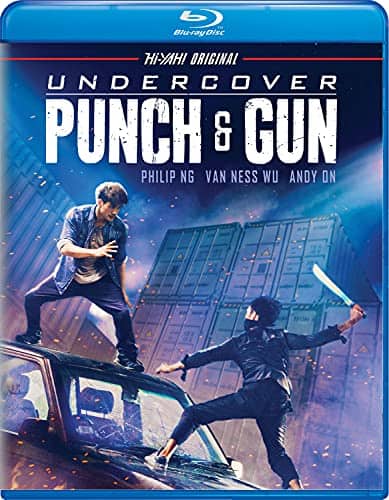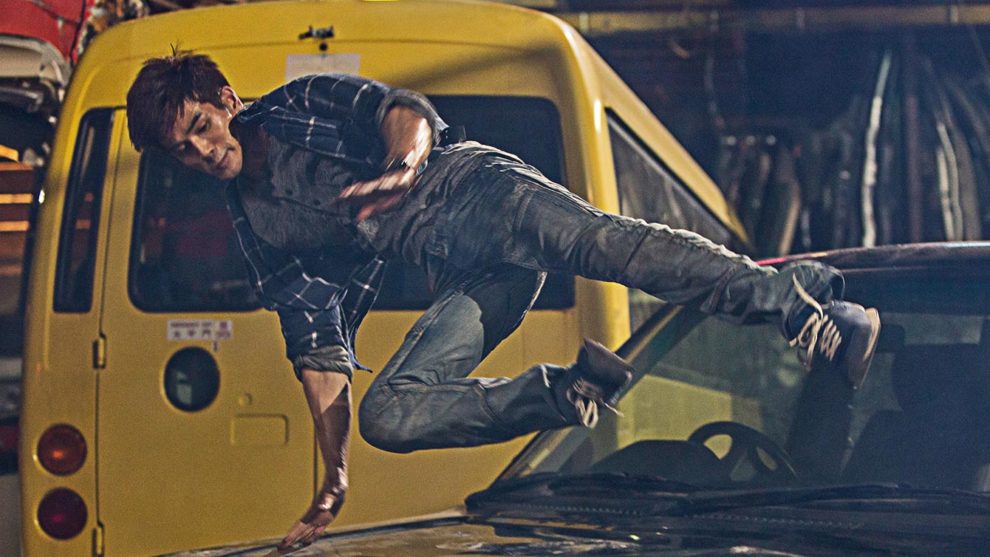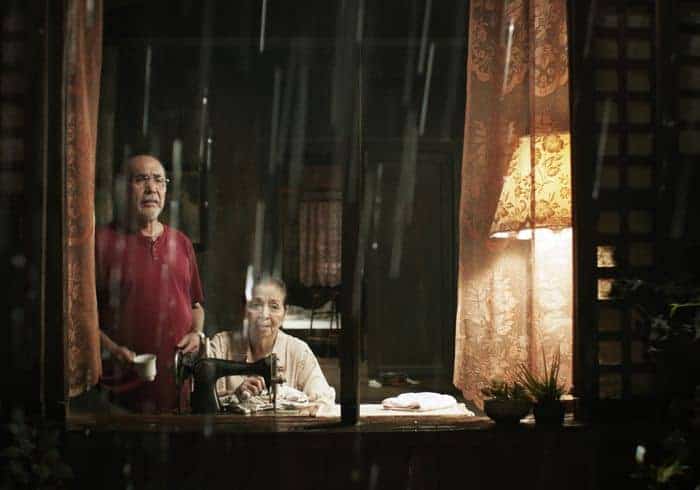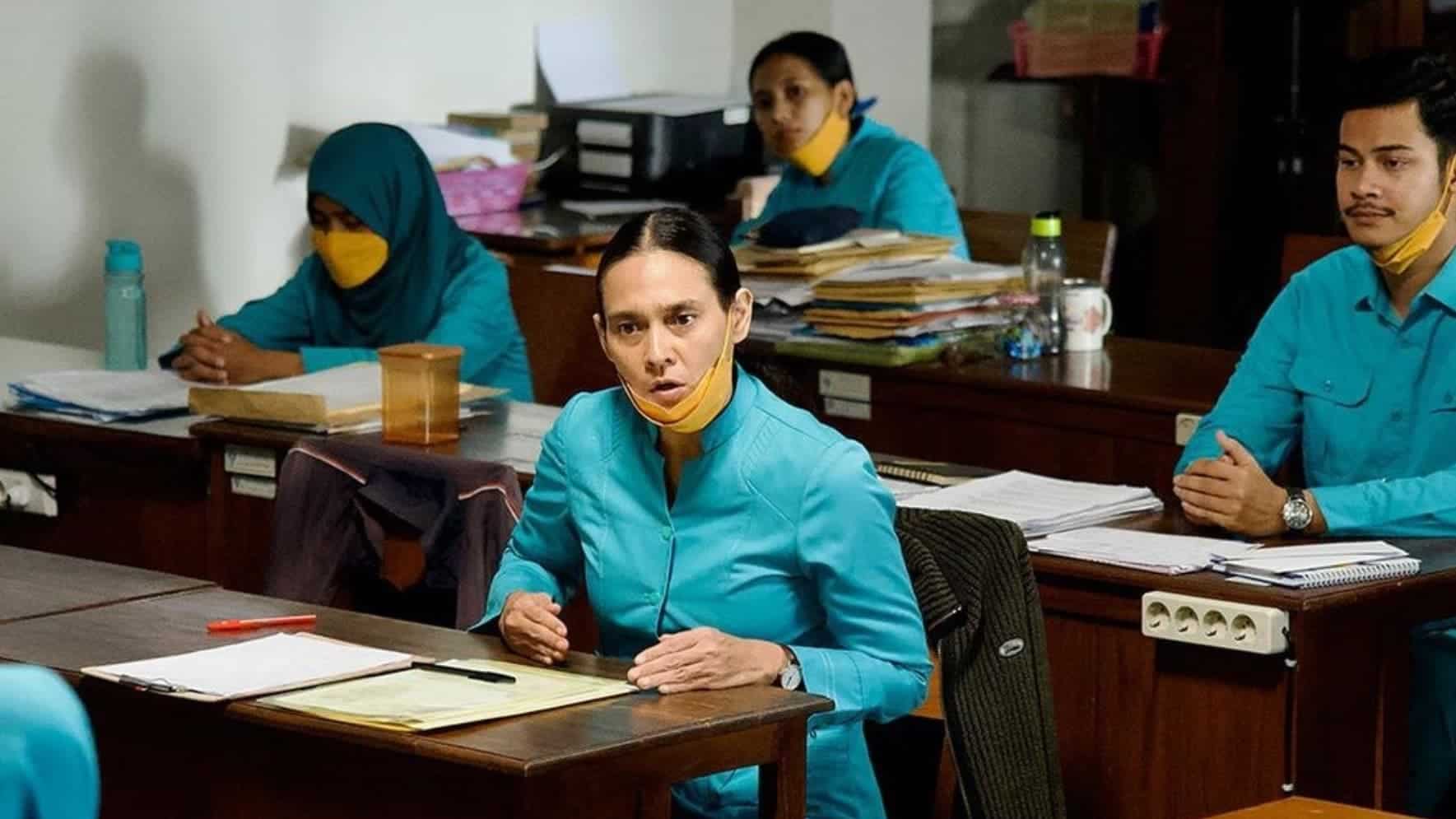The efforts to present films that reach the standards of the golden age of HK action cinema, and particularly of the works of Jackie Chan and Johnnie To, are quite numerous during the latest years, with a plethora of Chinese productions moving in that path. Lui Koon-nam and Frankie Tam in this case tried to combine the two styles, in a rather difficult effort. Let us see how they fared.
Buy This Title

Through a rather impressive series of introductory scenes, which include Xiao Wu, the protagonist of the story, escaping from a wooden crate he is locked into, and feature actors like Nicholas Tse and Suet Lam, we are introduced to the rather labyrinthal story. The aforementioned is an undercover cop who has infiltrated a small drug ring, but has gotten a little too much into the whole thing, even dating the boss's daughter, Xi Chen. When the boss is killed, however, Wu finds himself somewhere between duty and revenge, as a number of other players get involved. Miss Tong, a collaborator of his ex-boss is suspicious of him; Mai Lin, who initially seems like an enemy is eventually revealed as something else, while Xia Qiankun, also a former agent who now operates a meth trade from a cargo ship, emerges as the ultimate villain. Wu can only depend on his clownish informant, Hou Hu and Eva, a special agent who used to work with Xia.

What becomes evident from the beginning in the film is that the two directors tried to combine too many elements, and to promote their impressive cast as much as possible, an effort that, inevitably, resulted in a rather messy narrative. In that fashion, the To-like noir essence of the beginning soon gives its stead to intense action and moments of comedy, mostly deriving from Hou Hu, in a style much similar to Jackie Chan's movies. Unfortunately, neither these two individual parts nor the various transitions work, resulting in chaos, and not in an entertaining way. The way the various characters eventually connect with each other, mostly through their past, also follows the same direction, through an episodic approach, which again, seems to promote rather than advance the story. The same applies to the whole “conflicting undercover cop” aspect, which, does not work at all.
Considering, however, that HK action cinema always focused on individual scenes, rather than the narrative as a whole, it is interesting to see how the movie fares on this level. Starting with the one where Wu's boss dies, the action choreography by Philip Ng (who also plays Wu) is impressive, with the jazzy soundtrack working quite well, particularly when the tunes are fast. The same does not apply to the fast forward scenes, however, that look rather unnatural. Vanness Wu, who plays Hou Hu, is the main source of comedy here, and although his efforts are relatively convincing, I feel that his physique (he is rather bulky) somewhat deters from him being funny, since he looks too strong to be a “clown”. The sniper scenes, on the other hand, are quite interestingly presented. The moment where the film truly thrives, in terms of action, are when Andy On is on screen as Xia Qiankun, with him providing a great adversary to Philip Ng's Wu.
All the aforementioned positive elements of the movie find their apogee in the final fight in the cargo ship, where the pairing of characters in their fights is truly great. Knife against knife, sniper against sniper, and martial arts against martial arts provide an impressive set of scenes, with the whole film, essentially, functioning to pave the way to this part.
Chung Wai-chiu's editing implements a very fitting, rather fast pace through continuous cuts, although the movie could do with fewer episodes. The cinematography occasionally follows noir rules and occasionally HK action ones, and in that regard, the effort is generally good. However, the way the camera focuses too much on the appearances of the cast, and particularly of a number of actresses who seem to be there just as eye-candy or a tribute to the golden age of HK cinema, seems a bit excessive at times.
In the end, “Undercover Punch and Gun” may be considered worthwhile for some individual scenes and particularly the finale, but definite not as a whole.















